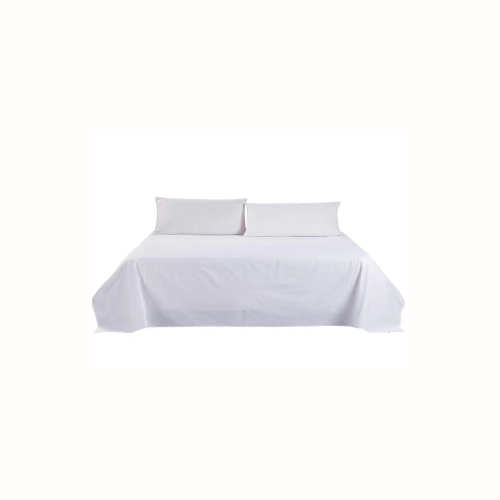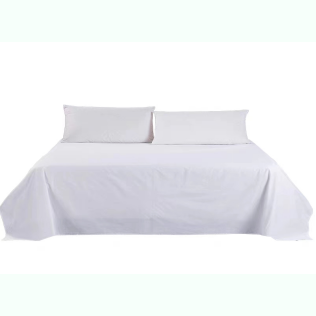Language
Currency


In today's interconnected world, the export of room linen has become a significant aspect of the global textile industry. This blog post delves into the intricacies of room linen export, highlighting the benefits, challenges, and strategies for success in this competitive market. We'll also explore how room linen from China has become a prominent player in this sector. Let's unravel the threads of this thriving industry and understand its global impact.
Understanding Room Linen Export
What is Room Linen?
Room linen encompasses a wide range of textile products used in bedrooms, bathrooms, and other living spaces. These products include bed sheets, pillowcases, duvet covers, comforters, towels, and other related items. Room linen is essential for both residential and commercial use, contributing to comfort, aesthetics, and hygiene.
The Importance of Room Linen Export
The export of room linen is crucial for several reasons:
- Economic Growth: It contributes significantly to the economies of exporting countries.
- Job Creation: Provides employment opportunities in the textile and logistics sectors.
- Global Trade: Facilitates international trade and cultural exchange.
Key Markets for Room Linen Export
Major Importing Countries
Countries with high demand for quality room linen include:
- United States: One of the largest markets due to its vast hospitality industry.
- European Union: Countries like Germany, France, and the UK are major importers.
- Middle East: Luxury hotels and homes drive demand in countries like UAE and Saudi Arabia.
Emerging Markets
Emerging markets are also showing increased interest in importing room linen:
- Asia-Pacific: Countries like Japan, South Korea, and Australia.
- Latin America: Brazil and Mexico are growing markets.
- Africa: South Africa and Nigeria show potential for growth.
Advantages of Room Linen Export
Quality and Variety
Exporting room linen allows companies to showcase a diverse range of high-quality products. This variety caters to different consumer preferences and market needs, from luxury hotel linens to affordable home textiles.
Technological Advancements
The use of advanced textile technologies has enhanced the quality and functionality of room linen. Innovations such as moisture-wicking fabrics, antimicrobial treatments, and eco-friendly materials are becoming standard in the industry.
Cost-Effective Production
Countries with established textile industries, like China, benefit from cost-effective production processes. This advantage allows them to offer competitive pricing without compromising on quality.
Room Linen from China: A Global Leader
Historical Context
China has a long history of textile production, dating back thousands of years. This rich heritage, combined with modern manufacturing capabilities, has positioned China as a global leader in room linen export.
Quality and Innovation
China's room linen is renowned for its quality and innovation. Chinese manufacturers invest heavily in research and development to produce textiles that meet international standards and consumer expectations.
Competitive Pricing
One of the primary reasons for China's dominance in the export market is its competitive pricing. Efficient production methods and economies of scale enable Chinese exporters to offer high-quality products at attractive prices.
Challenges in Room Linen Export
Market Competition
The export market is highly competitive, with numerous players vying for market share. Exporters must differentiate their products through quality, design, and customer service to stay ahead.
Regulatory Compliance
Exporters must navigate complex regulatory requirements in different countries. These regulations pertain to product safety, labeling, environmental standards, and trade tariffs.
Supply Chain Management
Efficient supply chain management is crucial for timely delivery and cost control. Exporters must address challenges related to logistics, transportation, and inventory management.
Strategies for Successful Room Linen Export
Market Research
Thorough market research is essential for identifying target markets, understanding consumer preferences, and analyzing competitors. This information guides product development and marketing strategies.
Quality Assurance
Maintaining high standards of quality is crucial for building a reputable brand. Exporters should implement stringent quality control measures at every stage of production.
Sustainable Practices
Sustainability is increasingly important in the textile industry. Exporters should adopt eco-friendly practices, such as using organic materials, reducing waste, and minimizing carbon footprint.
Branding and Marketing
Effective branding and marketing strategies help exporters stand out in the market. This includes creating a strong brand identity, utilizing digital marketing channels, and engaging with customers through social media.
Partnerships and Alliances
Collaborating with local distributors, retailers, and industry associations can enhance market reach and credibility. Strategic partnerships facilitate smoother market entry and expansion.
The Role of Trade Shows and Exhibitions
Industry Exposure
Participating in trade shows and exhibitions provides valuable exposure to potential buyers and industry stakeholders. These events are platforms for showcasing new products, networking, and gaining insights into market trends.
Networking Opportunities
Trade shows offer networking opportunities with other industry professionals, including suppliers, manufacturers, and customers. Building these relationships can lead to long-term business collaborations.
Market Insights
Attending industry events helps exporters stay informed about the latest trends, technologies, and consumer preferences. This knowledge is crucial for staying competitive and innovative.
Technological Advancements in Room Linen Production
Automation and Robotics
Automation and robotics have revolutionized textile manufacturing. Automated machinery increases production efficiency, reduces labor costs, and ensures consistent product quality.
Sustainable Materials
The use of sustainable materials, such as organic cotton, bamboo, and recycled fibers, is gaining traction. These materials are eco-friendly and appeal to environmentally conscious consumers.
Digital Printing
Digital printing technology allows for intricate and customized designs on room linen. This innovation offers flexibility in production and caters to the growing demand for personalized products.
Case Studies: Successful Room Linen Exporters
Company A: Innovating with Technology
Shanghai Textile Corporation, a leading room linen exporter, leverages advanced technology to produce high-quality products. By investing in state-of-the-art machinery and sustainable materials, the company has established itself as a market leader. Shanghai Textile Corporation employs automated weaving and dyeing processes that enhance efficiency and consistency. Their use of moisture-wicking and antimicrobial fabrics demonstrates their commitment to innovation and customer satisfaction. This technological edge enables them to meet the diverse needs of global markets while maintaining competitive pricing.
Company B: Expanding Globally
Welspun India, a prominent name in the textile industry, focuses on expanding its global presence through strategic partnerships and targeted marketing campaigns. The company's commitment to quality and customer satisfaction has earned it a loyal international customer base. Welspun India's extensive distribution network covers major markets in the United States, Europe, and the Middle East. Their collaborative approach, including partnerships with leading hotel chains and retailers, has facilitated market penetration and brand recognition worldwide.
Company C: Embracing Sustainability
Loftex China, renowned for its sustainable practices, prioritizes sustainability in its production processes. By adopting eco-friendly practices and using organic materials, the company appeals to environmentally conscious consumers and differentiates itself in the market. Loftex China's initiatives include water-saving dyeing techniques, the use of recycled polyester, and a strong focus on reducing carbon emissions. Their commitment to environmental stewardship not only enhances their brand image but also meets the growing demand for sustainable room linen products.
Future Trends in Room Linen Export
Eco-Friendly Products
The demand for eco-friendly room linen is expected to grow. Consumers are increasingly aware of the environmental impact of their purchases and prefer sustainable options.
Smart Textiles
Smart textiles, integrated with technology for enhanced functionality, are emerging in the room linen market. Features such as temperature regulation, moisture control, and health monitoring are becoming popular.
Customization and Personalization
The trend towards customization and personalization continues to rise. Consumers seek unique and tailored products that reflect their individual style and preferences.
Conclusion: Thriving in the Room Linen Export Market
The room linen export market presents immense opportunities for growth and innovation. By focusing on quality, sustainability, and market research, exporters can navigate the challenges and succeed in this competitive industry. Room linen from China exemplifies how a combination of historical expertise, modern technology, and strategic planning can lead to global market leadership. As the industry evolves, staying ahead of trends and continuously improving practices will be key to long-term success.
The global appetite for high-quality room linen shows no signs of diminishing. Exporters who adapt to changing consumer preferences, invest in innovation, and maintain a commitment to excellence will continue to thrive in this dynamic market.
Email format error
Email cannot be empty
Email already exists
6-20 characters(letters plus numbers only)
The password is inconsistent
Email format error
Email cannot be empty
Email does not exist
6-20 characters(letters plus numbers only)
The password is inconsistent